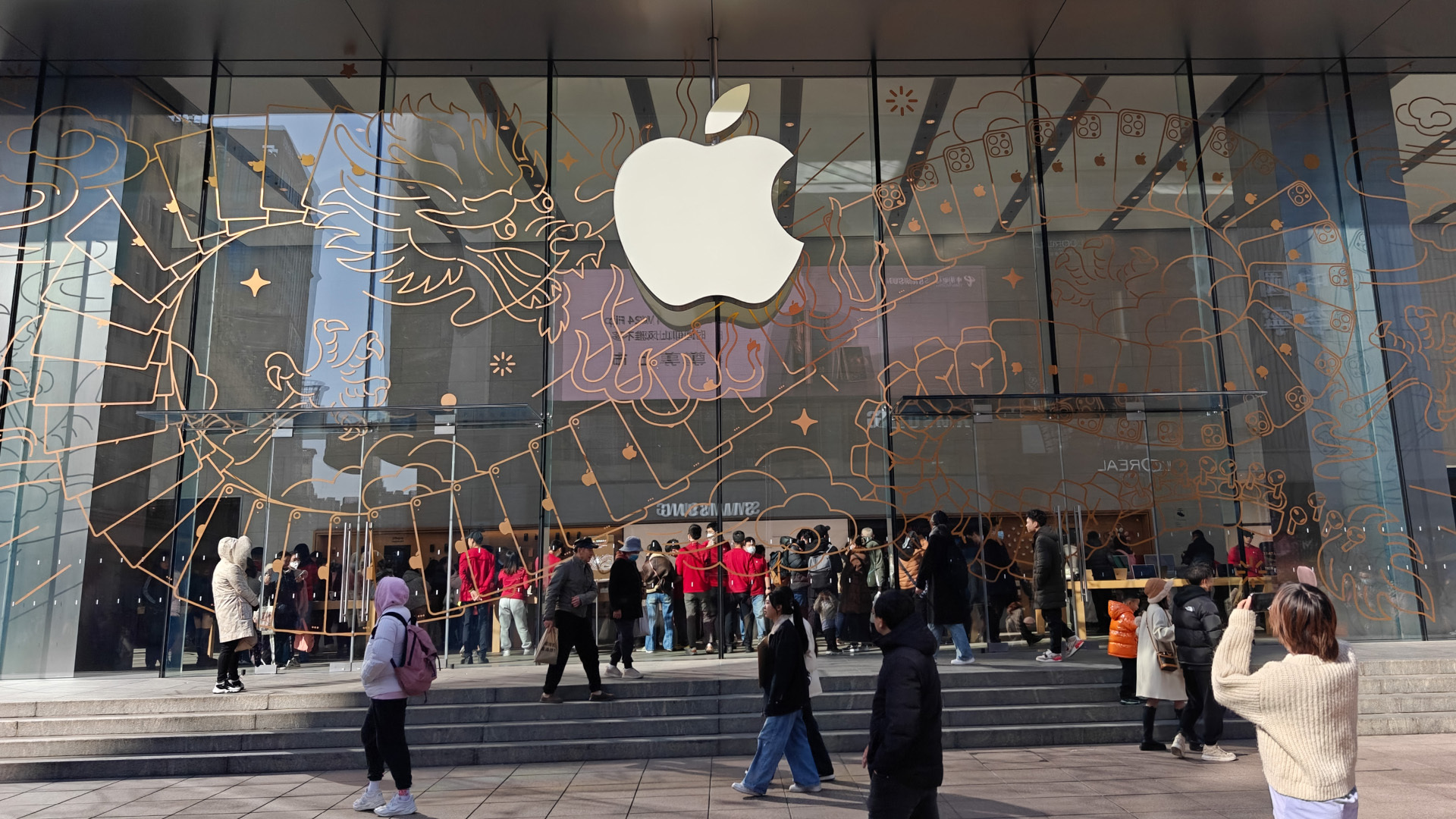
[SIMONE DEL ROSARIO]
Here’s why Apple’s iPhone sales are getting crushed in China.
Sales of the smartphone dropped 19% in the first three months of 2024, the worst showing since COVID hit. Meanwhile, sales from the Chinese smartphone maker Huawei surged nearly 70%, according to Counterpoint research.
China remains one of the biggest markets for Apple, but the company has been dealing with less friendly territory lately.
Multiple state-owned companies and government agencies are instructing employees to use local devices over foreign ones. That’s had an increasingly chilly effect on Apple sales.
[DOUG GUTHRIE]
I think that Apple’s not the target here, the US is the target, and it’s China flexing its muscles.
[SIMONE DEL ROSARIO]
We’re talking with Doug Guthrie, a China scholar at Arizona State University who worked for Apple, advising executives on China from 2014 to 2019.
[DOUG GUTHRIE]
I don’t think that people are really worried about the security of the iPhone. What they’re worried about is the fact that, you know, well, you guys have treated Huawei very. Badly, and you’ve claimed that there are security issues with Huawei, which is one of our most innovative private companies, and you thought you were hurting them. Maybe you pushed them towards innovation, but you think we can’t do a similar thing. And what it does is it just really sends a message about, okay, you guys want to go down this road of for tat, like we can start banning iPhone uses too. And there are other players here, and it’s a there’s a very, particularly interesting moment right now where you know, for I mean, it’s always iPhones Apple and Samsung and Xiaomi and oppo and vivo are like way down the list. But the fact that Apple abandoned its Titan project, the car, and the fact that Xiaomi just recently came out and said, like, you know what? We the Xiaomi phone makers, we have a car. I mean, it’s a really interesting moment in terms of thinking about the jockeying for who’s in control and who’s who’s more powerful. So I think the issue is less about concerns over Apple having access to data, and more concerns over, you know, posturing in the market and showing who’s more powerful.
[SIMONE DEL ROSARIO]
Any validity to this? China invites Apple in to do business. They’ve set up incredible infrastructure manufacturing. They’ve learned how Apple creates its products, and now, to your mention, their local companies are starting to thrive and do the same thing. Huawei is coming out with these new phones that are increasingly popular, while Apple is dramatically losing market share in the country. Did they invite Apple in, learn what they needed to know and now are kind of squeezing Apple out in favor of their local products?
[DOUG GUTHRIE]
I agree with virtually everything you just said. I would be I would be cautionary to say they’re squeezing apple out, but they have been incredibly smart at the inviting in and learning. And you know, this is again, like letting apple in in 2001 to 2013 was just sort of open markets. Under Hu Jintao, Bucha vows you guys, come on in, do whatever you want. And but under Xi Jinping, we saw a very different tone of the Chinese government. And you know, it was not only the signals like consumer day and like the CSR report that came out in 2015 but it was really what I’ve called the rule by law system in which you can create rules and regulations that make it impossible for foreign companies to operate. And you know, those foreign companies then need to show up and say, Well, what do you guys need from us? Like, how can we help? And how can we be partners?
And so I think China has been very good at playing that game in the last decade. And so I think there’s still a tremendous amount of respect and value for Apple ops engineers. And so I don’t think they want to squeeze apple out, but I do think they want to send a signal saying, we don’t need you guys quite as much as you think we do, and we are, you know, I think they want to assert to the world. And again, this isn’t a signal to Apple. I think this is a signal to the US and the world like you guys think that you still have us beat as an economy. We have the most sophisticated manufacturing supply chain in the world, and within a decade, we’re going to be the largest economy in the world. And so if Janet Yellen wants to come over here and shake her finger at us and say, we don’t really know how to run a market economy, we do, and we’re just as good as you. And so I think that’s really the signaling and the message. And then, you know, I think Apple and its sales in China are sort of collateral damage of that.







